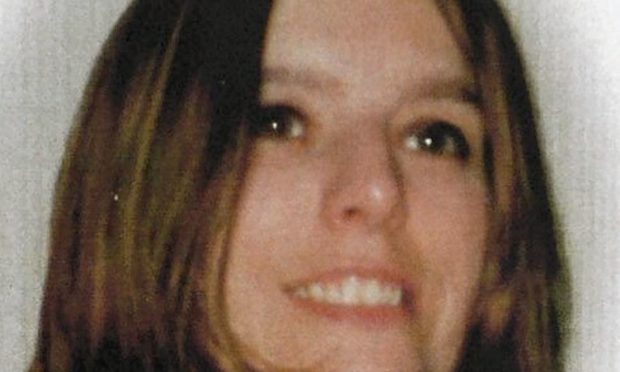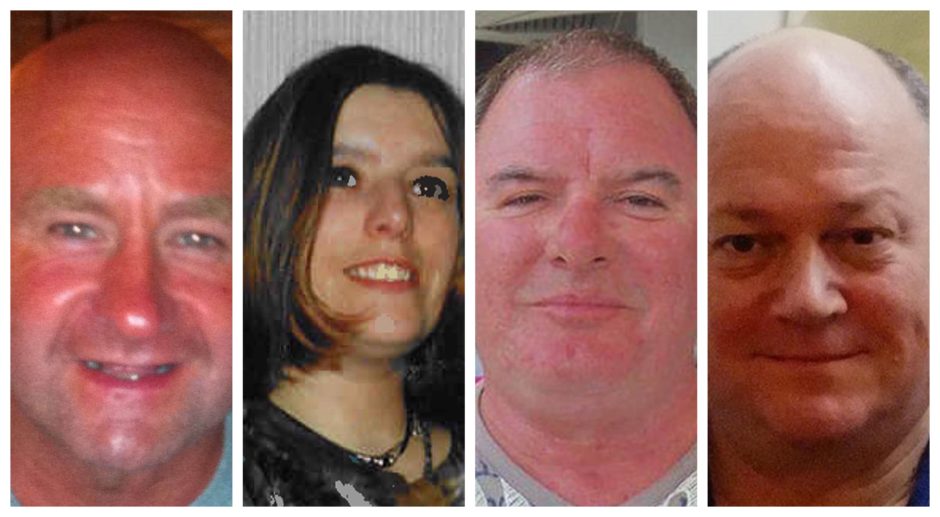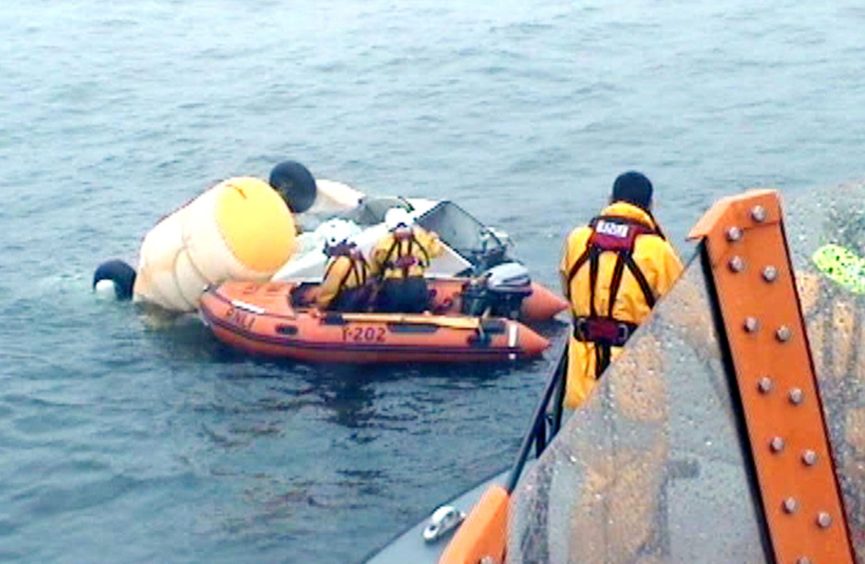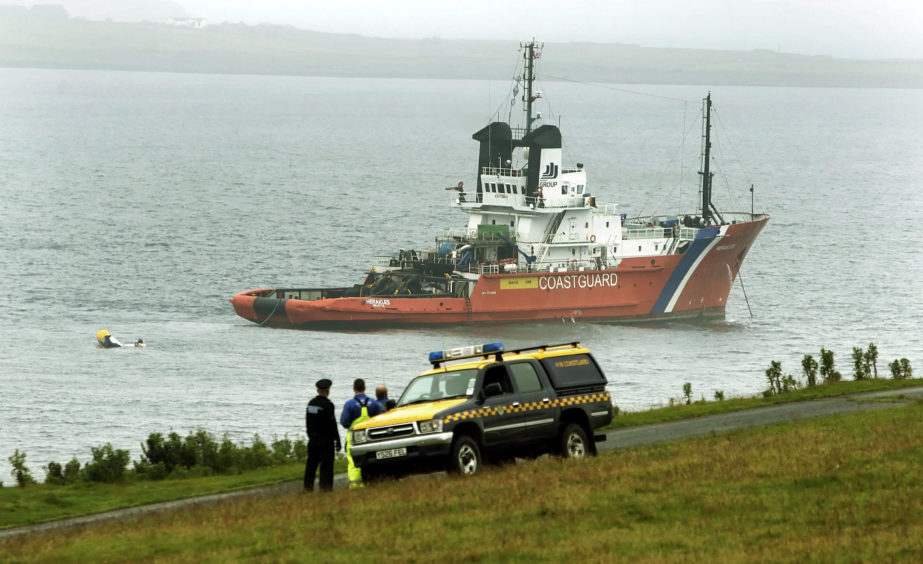The family of a Moray woman who died in the Sumburgh helicopter tragedy say they have received “no closure” from the results of the fatal accident inquiry.
Sarah Darnley, 45, from Elgin, was one of four people who died after the aircraft crashed off the coast of Shetland in September 2013.
Her parents Anne and Edmund campaigned tirelessly for six years following the accident to ensure the causes of the crash were examined in a courtroom.
Yesterday the couple paid tribute to the strength of the surviving passengers for recounting the “harrowing” events – but said they were still left without closure about the tragedy.
Sheriff Principal Derek Pyle made no recommendations in his determination while ruling the ditching had been caused by pilot error and a “perfect storm” of circumstances.
Meanwhile, union bosses have maintained the tragedy was “avoidable” while calling for a public inquiry to examine the impact of commercial pressures on the helicopter industry due to concerns safety systems were not properly used.
In a statement issued on their behalf, Sarah Darnley’s family said: “We wish to express our gratitude to the surviving passengers who gave evidence before the inquiry.
“Recounting the events of that day was very clearly a harrowing task and our thoughts are with them as they try to rebuild their lives.
“Seven years have passed since the tragedy, but we cannot say that today brings closure for us.
“Sarah was a beloved daughter, sister and niece and we think about her every day.
“We cherish the memories we have, and are forever grateful she was part of our lives.”
The tragic flight also claimed the lives of Gary McCrossan, from Inverness, Duncan Munro, from Bishop Auckland, and George Allison, from Winchester.
Sheriff Principal Pyle concluded the deaths had been caused by the helicopter crew failing to properly monitor the cockpit instruments.
The inquiry heard the pilots activated a 3-axes autopilot system during the approach instead of the more modern 4-axes, which ensures airspeed is monitored automatically and not just manually.
Evidence given in the hearing by Air Accidents Investigation Branch (AAIB) investigator Alison Campbell explained the more sophisticated system would have “reduced the workload” of the crew
However, the inquiry also heard the 3-axes system was specified by the helicopter operator, CHC, at the time and Ms Campbell added the pilot was “perfectly entitled” to fly in that mode.
Yesterday union RMT maintained the tragedy could have been averted.
General secretary Mick Cash said: “RMT is disappointed the FAI predictably kept the scope of the inquiry very narrow, looking at the events at the precise moment of the tragedy.
“There was no consideration of the wider aspects of what led to the tragedy and the loss of four lives, including RMT member Sarah Darnley.
“The fact remains the tragedy would have been avoided if the safety systems in the helicopter had been enabled.
- October 20, 2020
- October 20, 2020
- October 19, 2020
- September 14, 2020
- September 11, 2020
- September 10, 2020
“Those systems were inhibited because the pilots hadn’t been trained how to use them.
“The fact the safety systems were fitted in the aircraft tells us the risks of such an event occurring were apparent to the helicopter manufacturer.
“The fact the pilots weren’t trained to use the safety systems tells us that commercial pressures were a factor in a tragedy which was completely avoidable.”
Oil and gas agency Step Change in Safety has praised changes made by the aviation industry in the years since the Sumburgh crash.
Executive director Steve Rae said: “The learnings from the comprehensive safety review initiated by this event were far reaching and changed the way we manage and monitor helicopter flight parameters.
“My thoughts are with the survivors and those who lost loved ones and family members because of this tragic accident.”
The FAI also attributed the death of passenger Sam Bull, who took his own life in December 2017, to the incidents.
Mr Bull was diagnosed with post-traumatic stress disorder after ensuring the safety of other survivors and performing CPR on Mr McCrossan after the ditching.
Following his death, his family began campaigning about mental health problems to raise awareness of the impact trauma can have.
Speaking to the BBC, his father, Michael Bull, said: “There was clearly an injury, a big change in him, a mental injury, which ultimately led to his death.
“The inquest did confirm that it was the helicopter crash which caused the PTSD, which led to his suicidal thoughts, and eventually to his death.
“For many people it’s very difficult to understand that something like that can have that amount of impact – it really does change people.”
In his findings, Sheriff Principal Pyle also addressed the delays that led to the notice for the inquiry being lodged over six years after the accident and the FAI itself starting over seven years later.
He said he had initially been critical of the delay and its impact on families but, having heard evidence from The Crown, now understood much of the delay was beyond its control.
Shetland MSP Beatrice Wishart said last night she had written to the Lord Advocate to request he address the “inexcusable” delay which had “prolonged the pain for families”.
“The pain of losing a loved one is like no other, and I would pay tribute to the strength and determination shown by those involved in this inquiry,” Ms Wishart said.
“There are now serious questions that need to be answered about why this inquiry has taken so long, and prolonged that pain.
“Instead of knowing exactly what happened and why, everyone involved has been weighed down by the bureaucracy of this investigation.
“Fatal Accident Inquiries have been subject to serious and legitimate criticisms for a number of years now.
“The whole process loses its value as time goes on, memories become unclear and lessons go unlearned.
“No family should have to suffer through that. But if there are no fundamental changes to the system, a delay like this will only happen again.”
The Sheriff Principal said the nature of evidence gathering and investigating both the incident and whether a crime has been committed, combined with the separate AAIB investigation and the fact its sensitive findings could not be divulged without a court order all played their part.
The investigations of the police and The Crown, he said, could not even begin until that of the AAIB was concluded, more than two years after the accident.
A complicated legal case over access to the black box recorder on its own added 18 months.
The Sheriff Principal added: “In the longer term, I note that consideration is being given to establishing a protocol between the CAA (Civil Aviation Authority) and the Crown for the investigation of air accidents. I would encourage that initiative.”



